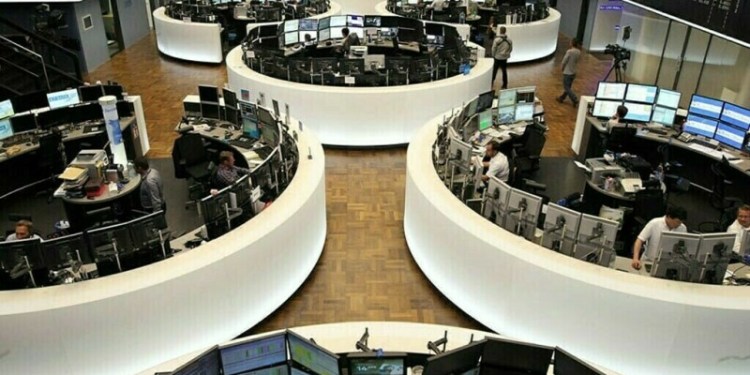 More pain in store for Italian bonds: NN IP CIO
More pain in store for Italian bonds: NN IP CIOBy Sujata Rao and Karin Strohecker
LONDON (Reuters) – Italian assets have further to fall before prices start to look attractive but the selloff will not trigger 2012-style contagion across the euro zone or require the ECB to step in, NN Investment Partners’ chief investment officer said on Tuesday.
Italy has locked horns with the European Commission after unveiling a budget with a deficit three times bigger than pledged. It has until the end of Tuesday to present a revised draft, but its leaders have baulked at major changes, fuelling a selloff in government bonds and stock markets.
Valentijn van Nieuwenhuijzen, who helps to manage 240 billion euros ($271 billion), predicted more selling.
“BTPs (Italian government bonds) are already attractive. At the same time, I think that in the next 6-12 months they will become more attractive than they are today,” he told the Reuters Global Investment Outlook Summit in London.
While he does not expect the Italian situation to “spin out of control”, he said “for the political pain to be high enough to really force their arm, you might need to see another 50-100 basis points higher levels in (bond) spreads over Germany.”
The 1/0-year spread is just over 300 basis points, having doubled from end-2017 levels as political risks have grown.
The Commission rejected Italy’s draft fiscal plan last month and has threatened penalties. Van Nieuwenhuijzen said there was a risk that a forceful reaction from authorities “might invite markets to be much more negative” and affect Italian and other weak euro zone banks.
So far though, in contrast to the Greek crisis, Italy’s problems have not spilled abroad.
Van Nieuwenhuijzen does not expect that to happen, because Italy remains committed to the euro and other euro zone economies look more resilient than in the past.
Nor does he expect the European Central Bank (ECB) to need to bail out Italy. Instead, LTROs could be an option, he said, referring to cheap loans for banks that eased the euro zone crisis.
Speaking on Tuesday in London, the ECB’s chief economist Peter Praet said policymakers had discussed using the bloc’s bailout fund to stem any contagion from Italy, possibly by granting governments easier access to precautionary credit lines.
EMERGING MARKETS, DOLLAR
Van Nieuwenhuijzen said he remained wary of betting against a surging dollar just yet, but saw signs of recovery in emerging markets.
“(However) it’s really more a story of (EM) divergence. The tailwinds in terms of capital flows and support for EM in a broad sense, they’ve moved aside this year, I don’t think they will come back next year,” he said.
“Poland is one of our preferred stories for next year because we do think their political winds will become a bit more supportive of reform.”
Brussels says political reforms in Poland are undermining the independence of its judiciary, and the ruling nationalists in Warsaw have rowed back somewhat on the overhaul.
Van Nieuwenhuijzen also said that for next year he expected:
* Emerging markets had to be picked on the back of their idiosyncratic stories. “South Africa, Indonesia look a bit troubled in our opinion.”
* Trade war is “the number one factor that could make us change our minds on markets”. As long as it remained on the U.S-China axis, he expected limited fallout elsewhere.
* Fallout from Brexit would be broadly limited to UK assets. In the event of a hard Brexit, he would “not be wishing to buy into UK assets”.
For more summit stories: [http://www.reuters.com/summit/Investment18]
Follow Reuters Summits on Twitter @Reuters_Summits
Source: Investing.com



























